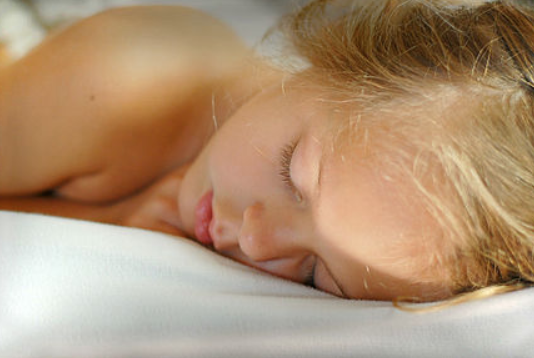Some Foods Help You Sleep And Some Disturb Your Sleep (#GotBitcoin?)
An expert on nutrition and sleep discusses research on the worst offenders in bringing on a bad night’s sleep—and a couple of unexpected sleep aids. Some Foods Help You Sleep And Some Disturb Your Sleep (#GotBitcoin?)
Most people know that caffeine close to bedtime can interfere with sleep and that tossing back cocktails in the evening can cause a person to wake up a few hours later when the alcohol is metabolized. But less research has been done to understand the effects of food on sleep. One expert, Marie-Pierre St-Onge, an associate professor of nutritional medicine at Columbia University Irving Medical Center in New York—and director of the university’s Sleep Center of Excellence—explains the sleep-diet relationship and what foods may disturb your slumber.
Poor Diet, Poor Sleep, Poor Diet: A Cycle
Dr. St-Onge says data from large studies observing human behaviors and their relation to health have shown that people who say they suffer from poor sleep quality tend to also report a relatively poor diet. From clinical studies, “we know short sleep can result in increases in food intake,” says Dr. St-Onge, who is also a member of the American Academy of Sleep Medicine. But, she says, even large studies can’t determine which comes first: the poor diet or the poor food choices.
Her own research has shown that how much and how well a person sleeps at night influences eating choices the next day. “If you don’t get enough good sleep or you’re sleep-deprived, you’ll eat more, and that food will be higher in fat or carbohydrates, and it will probably be a higher caloric intake than if you’re well-rested,” she says.
On the flip side, Dr. St-Onge and her colleagues have looked at how food affects sleep. They gave a group of 26 healthy adults a controlled, healthy diet based on FDA guidelines for four days and measured their sleep in the lab.
On another day, they let the participants choose their own food, then measured their sleep. “They ate 33% more saturated fat and about 500 more calories when they self-selected their own food,” she says. On the day participants chose their own meals, they needed almost twice as long to fall asleep at night as when they were given the controlled diet.
The worst offenders in causing a bad night’s sleep were fat and sugar, Dr. St-Onge says. A diet higher in sugar than the daily recommendation brings on more micro-awakenings—changes to a lighter stage of sleep—at night, she says, while more saturated fat results in less slow-wave, or deep restorative sleep, that helps with memory consolidation.
Eat Your Kiwis
Some unexpected foods may act as sleep aids. One study showed that eating kiwifruit, which is high in the mood-moderating hormone serotonin, can help people fall asleep and stay asleep longer. The same goes for tart cherry juice, which is high in the sleep-wake-cycle regulating hormone melatonin.
A higher intake of fiber—fresh fruits and vegetables and whole grains—also has been shown to keep a person in slow-wave sleep for longer than usual, Dr. St-Onge says. But she’s not yet certain if eating any of these foods at a particular time of day has more impact. “I would assume it would be time-sensitive but this hasn’t been well-studied,” she says.
Skip the Energy Drink
People who feel sleepy during the day often turn to fatty food or a sugary drink to perk up, she notes. Some people have reported that spicy and salty foods keep them up at night, but Dr. St-Onge says she hasn’t seen research on this.
Staying hydrated throughout the day, rather than gulping a lot of water right before bed, can help with restful sleep by diluting sugars, spices and salts—and preventing trips to the bathroom. Dr. St-Onge herself stops eating a few hours before bedtime. “People can experiment with what their time sensitivity is when it comes to eating, but it’s good for food to be digested before you go to bed,” she says.
Sticking to a fairly regular diet that’s high in fiber and low in saturated fats and simple sugars could contribute to sleep quality, and is associated with better overall health, Dr. St-Onge says. People who don’t sleep well, she notes, have lower attention spans, more memory lapses, worse cognitive and athletic performance and a higher risk of diabetes, cardiovascular disease and hypertension.
“Sleep is critical to every organ, and what we eat impacts every system in the body,” Dr. St-Onge says. Some Foods Help You, Some Foods Help You, Some Foods Help You
Related Articles:
The Iodine Deficiency Epidemic — How To Reverse It For Your Health
Dollar Stores Feed More Americans Than Whole Foods (#GotBitcoin?)
Consumer’s Appetite For Organic, Antibiotic / Hormone-Free Food Outstrips Supply (#GotBitcoin?)
Food Companies Get Until 2022 To Label GMOs (#GotBitcoin?)
Food, The Gut’s Microbiome And The FDA’s Regulatory Framework
Food Regulators To Share Oversight of Cell-Based Meat (#GotBitcoin)


Leave a Reply
You must be logged in to post a comment.